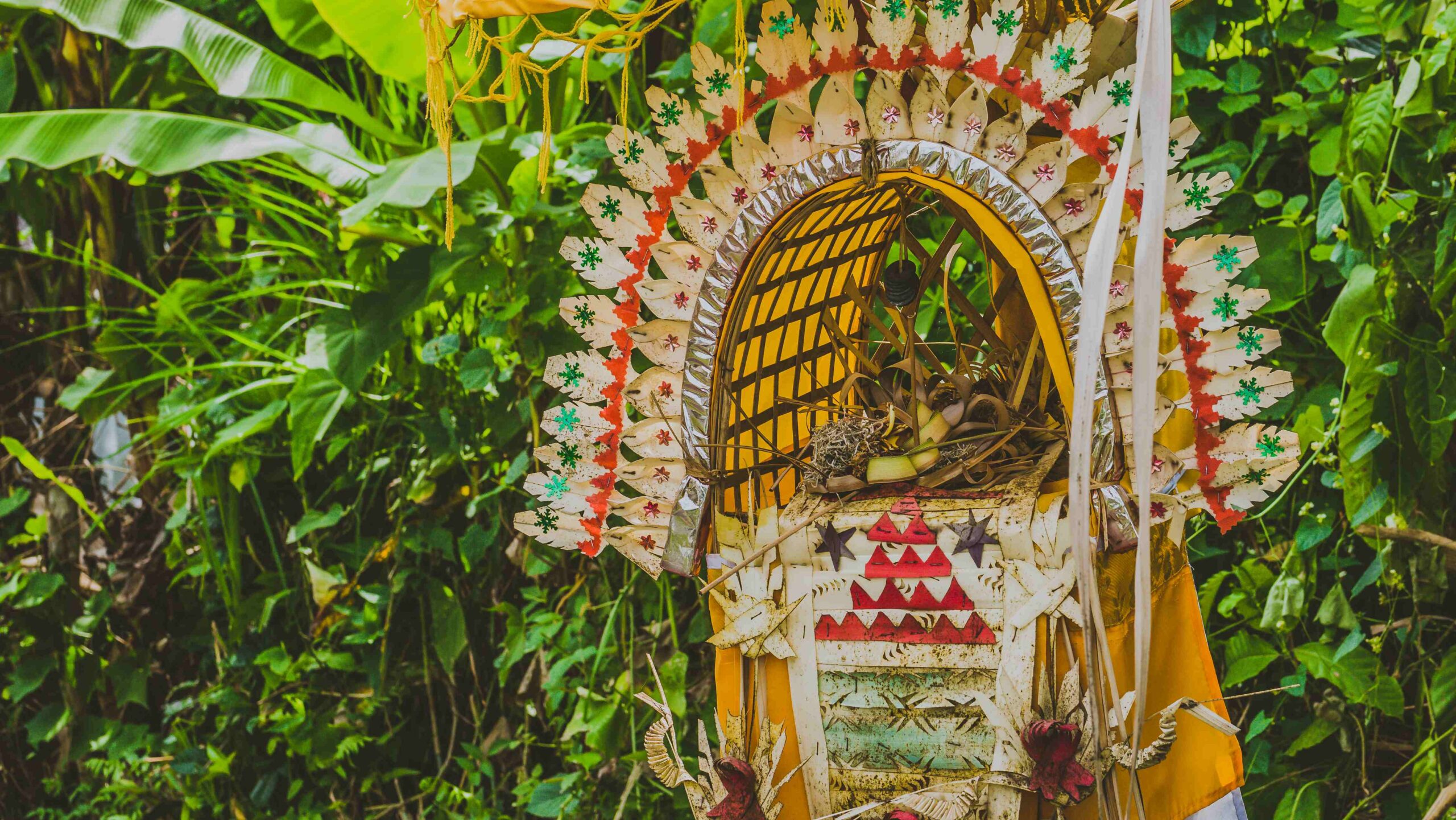If you’ve ever visited Bali around the time of the Galangan Festival then you will have seen the streets decorated with ornate curved bamboo poles.
These poles are known as penjor, and they serve an important purpose for the people of Bali. Our guide will introduce you to penjor and help you better understand these powerful symbols.
What Is A Penjor?
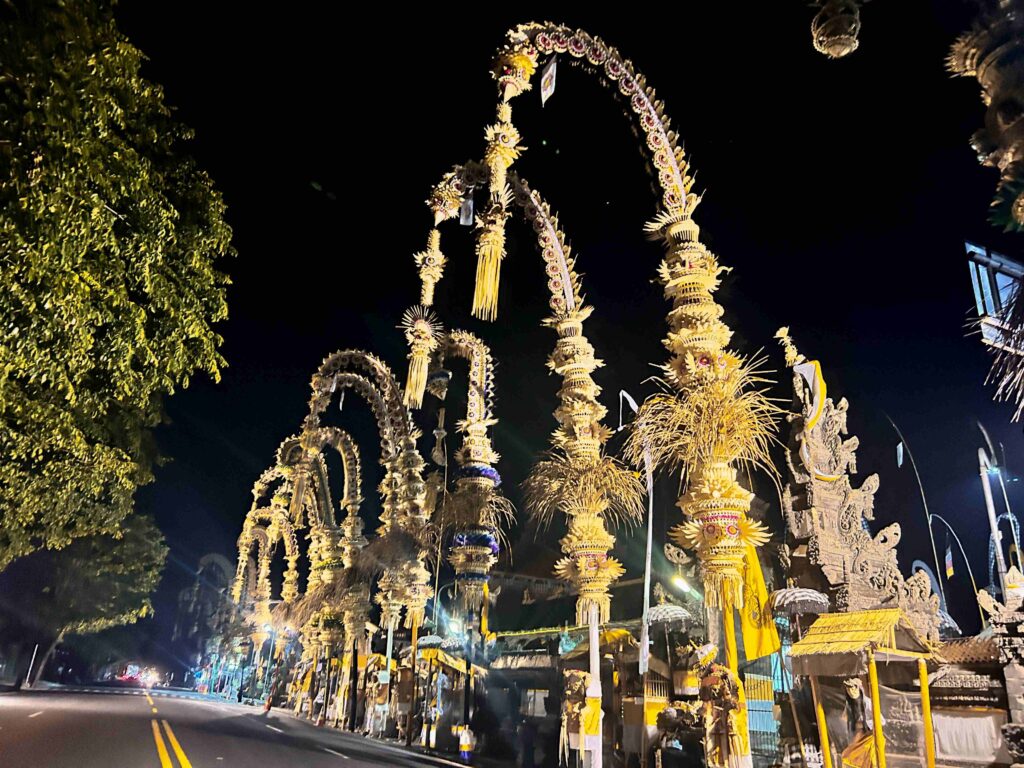
A penjor is a curved bamboo pole that has been shaped to be used as an offering in Bali’s Galungan festival.
The Origin Of The Penjor
Penjor have been made on the island for as long as Hinduism has existed here.
The name comes from the word “unjor” in Balinese, which means “bend” or curve”.
How Is A Penjor Made?
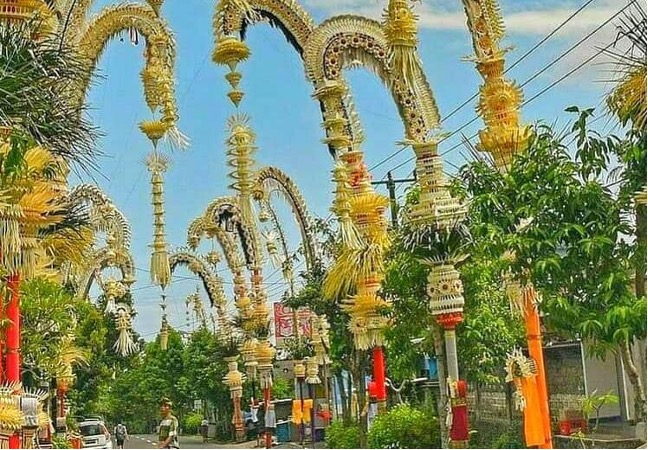
If you want to make a penjor, you have to begin by choosing the right bamboo pole as it’s the key ingredient. If it can’t be bent properly to achieve the arch shape, you’ll need to fetch another pole.
Once it has been bent, then it can become a decorated bamboo pole and you will find janur (fresh, young coconut leaves), coconuts, sweet potato (pala bungkah), cucumbers (pala gantung), rice cakes, sugarcane and other decorations to the penjor.
The idea is to represent the bounteous gifts bestowed on people by nature and the lush vegetation of the island through the provisions that are attached to each penjor. Symbolic materials are important here.
However, there is one other proviso when it comes to making these intricate decorations and that is you must come from a penjor line of penjor makers.
These are a religious symbol and the Balinese people take them pretty seriously, so the artistry required is something that needs someone with a proper relationship with the local gods.
Symbolism And Meaning Of Penjor
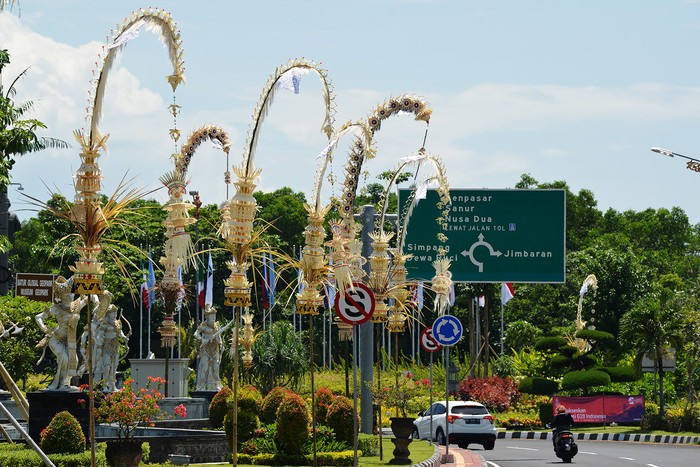
There is a ton of symbolism in these decorations and it’s important to fully understand why Galungan Day is marked with Galungan Penjor.
The Connection Between Man And Nature
Firstly, the choices of materials from small cakes or rice (pala wija), to coconut leaves, to bamboo are all meant to help show the relationship between the people of this island and the Earth that sustains them.
The fertility of the soil here comes from the sacred Mount Agung, the island’s largest volcano, and these natural materials help to show gratitude for these gifts.
A Show Of Strength And Majesty
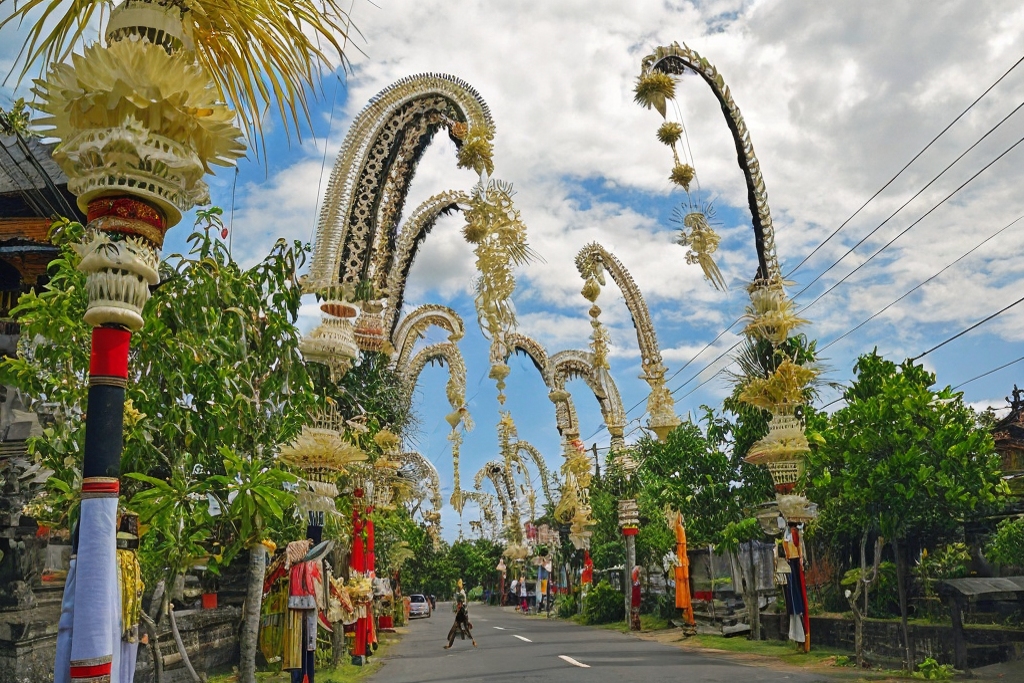
The height and strength of a penjor is no accident either. Balinese folks have aspirations and the strength and power of a penjor is a testament to the desire of people to become great in their own lives.
Invoking The Divine Presence
The arch formed by the bamboo penjor is a symbol of Lord Vishnu himself, who is a significant aspect of the one true deity of Balinese Hinduism.
The divine presence of this god promotes prosperity and drives away evil from the Earth.
Showing Reverence For Ancestral Spirits
The penjor are also a symbol of the bridge between the living Balinese and their ancestral spirits. Before Hinduism became the dominant religion in this region, most faiths were animist.
This tradition continues informally as part of the penjor erected at festivals.
Demonstrating Artistry And Craftsmanship
There is also the achievement of making a penjor itself. It requires a skilled craftsman and the efforts supplied to make these penjor are a testament to the heritage and the folk of the island.
The Use Of Penjor In Religious Festivals
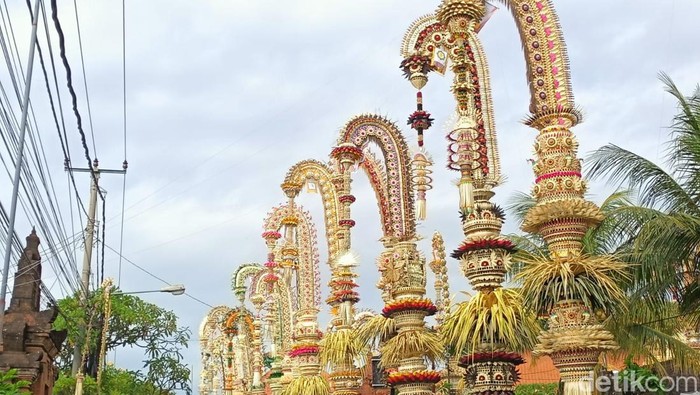
Mostly, traditional penjor are used at the time of Galungan and are called Galungan Penjor.
These are offerings that fully demonstrate the principles outlined above.
However, as penjor are quite lovely and Galungan doesn’t take place all that often, many places in Bali now display decorative penjor all year round.
This is perfectly fine, though they do not have the same significance as those used in religious rites.
The Tradition Of Penjor Making In The Modern Era
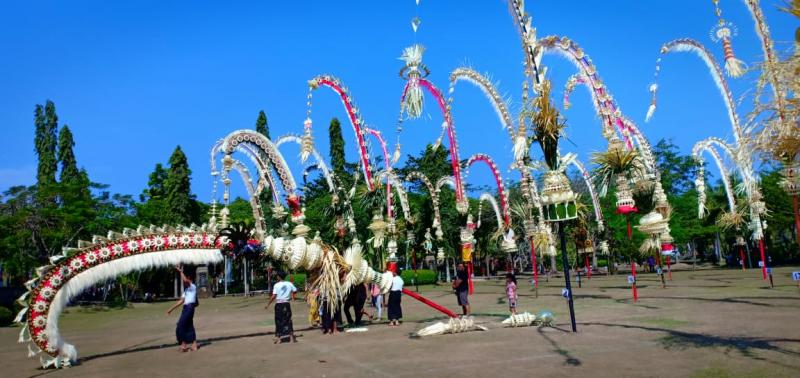
One thing we should note is that while, traditionally, penjor are made by villagers to honour the gods, life has changed in Bali in recent years.
Many people still wish to honour their traditions but simply no longer have the time to make their own penjor.
Thus, a certain amount of pragmatism has been brought to bear on things and now there are businesses that do nothing but make penjor to supply those who no longer have the time to do so.
FAQs
Do Balinese Place Offerings At Penjor?
No, canang sari, the most common form of offering, is found at the entrances to buildings of all types.
However, penjor themselves are a kind of offering, and there’s no need to add additional offerings to them.
What Are The Poles In Bali?
The curved bamboo poles are known as penjor and they are a very important part of celebrating certain religious festivals in Bali.
What Are The Bamboo Offerings In Bali?
Bamboo offerings in Bali are called penjor and they decorate the streets at certain times of the year.
What Are The Street Decorations In Bali?
It depends, if you’re talking about the large bamboo poles, they are penjor but if you’re talking about the small offering trays that you find outside someone’s house, business or place of worship, they are canang sari.
Final Thoughts On Penjor, Bali
Penjor are part of a beautiful religious tradition in Bali that helps to ensure that the future of the island is prosperous and that people can properly honour their ancestors.
Traditions like this one are the reason that so many people visit this island and its wonderful people.

